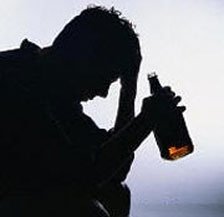Alcohol Abuse: A mental health problem, a coping skill or a bad habit?

Dr Chido Rwafa-Mental Wellness
AS discussed in previous articles, mental health is defined as a state of well-being in which an individual realises his or her own potential, can cope with the normal stresses of life, can work productively and fruitfully, and is able to make a meaningful contribution to their community.
Harmful use of alcohol is one very com- mon challenge that often compromises our mental health and well-being as individuals and as communities.
The recreational use of alcohol has been a part of human society since time immemorial and is often accepted as part of normal adult social events. However, excessive use of alcohol can cause physical, psychological and social problems.
What is healthy drinking?
Alcohol is a psycho-active substance that affect how our brains function but there are health guidelines on how it can be consumed to limit the harm it can do.
Most guidelines recommend that men consume three or less standard alcoholic drinks on any given day and not more than 14 drinks a week.
Women are recommended to take two or less standard alcoholic drinks on any given day and not more than seven standard drinks in a week. A standard drink is about half a pint of beer, 250mls of wine and 10mls of spirit.
This means the recommended limit of alcohol using pints of beer a day for a man would be one and a half pints and no more than seven pints in any given week.
For women its one pint per any given day and a limit of three and a half pints in any given week. In addition to the daily and weekly limits, it is also recommended that one should not drink everyday and each week there should be two or more alcohol free days.
Pregnant women and young people below the age of 18 should not drink at all.
It follows therefore that it takes much discipline and self-restraint to drink in a safe fashion.
What is harmful drinking and why is it a problem?
Drinking alcohol above the recommended guidelines, binge drinking (drinking more than five standard alcohol drinks in one sitting), drinking to soothe physical or emotional pain or distress, drinking to feel happier or less anxious; to deal with grief, overcome loneliness and build up low self-esteem can all result in harmful use of alcohol. Alcohol abuse can be both a mental health problem in and of itself as well as also a maladaptive coping mechanism, an escape from the challenges of life.
Alcohol however, is not a suitable medication for our pain and should not be used as such. If we are in emotional distress, we need to seek appropriate help and not turn to alcohol as a solution.
Excessive drinking or abuse of alcohol can result in physical, psychological and social challenges. Alcohol is linked to over 200 physical health problems including liver damage, gastro intestinal cancers, heart failure in young people, hypertension, nerve damage, sexual dysfunction and damage to the unborn infant if a pregnant woman drinks.
Alcohol use has also been associated with the transmission and progression of HIV and other infectious diseases, such as tuberculosis and pneumonia.
Psychologically alcohol can result in dependence or addiction, often characterised by an increased tolerance…needing more and more alcohol to get the same effect as well as withdrawal effects (hangovers).
Habitual abuse of alcohol leads to abnormal dopamine release in the brain.
Dopamine is a natural chemical that allows us to experience pleasure, ‘our natural feel good hormone’ that we release in moderate amounts when we spend time with beloved friends or family or when we have our favourite meal or when our soccer team wins a match.
Alcohol and other addictive substances as well as addictive habits such as gambling or excessive social media use raise dopamine in an excessive, abnormal way and destroys the natural balance in the brain and this results in dependence on the substance or habit.
Thus alcohol abuse is not just a ‘bad habit’, it is a mental health condition that needs to be addressed as such.
Alcohol abuse can also lead to depression, anxiety, poor sleep, learning and memory problems as well as an increased risk of suicide. Alcohol abuse often results in strained relationships, damaged marriages, compromised environments for children and young people in homes and difficulty coping with work or school pressures.
Alcohol abuse is one of the leading causes of road traffic accidents and can also result in many other physical injuries through accidental falls and interpersonal violence.
Young people and alcohol abuse
Young people are at particular risk of com- plications of alcohol abuse. The brains of adolescents and young people are susceptible to dependence and other complications of alcohol use due to under-development of the brain especially the reward system that plays a big part in development of addictions. Young people may find it hard to control their impulses and this can result in excessive alcohol consumption and risky behaviour subsequently.
Use of alcohol before 14 years of age is associated with a greater risk of alcohol abuse and development of dependence or addiction. Alcohol also shuts down the amygdala which is the brain’s danger warning system, when we drink excessively we can thus become vulnerable to exploitation and abuse.
As we strive to be more aware of our mental health and well-being, it may be time to reflect:
◆ Am I drinking in a safe, moderate manner as recommended by health and safety guidelines?
◆ Am I possibly using alcohol as a medicine to help deal with feelings of sadness, anxiety, insomnia or grief?
◆ Do I struggle to cut down the amount of alcohol I have been taking when I want to?
◆ Do I feel guilty about my alcohol use or get annoyed or irritable if I am questioned about my alcohol use?
◆ Am I now struggling with withdrawal symptoms that affect my ability to function or result in me needing to drink in order to function?
If you think that you or someone you know may be struggling with alcohol abuse, please contact your nearest health care provider and get help.
Association of Health Care Funders of Zimbabwe (AHFoZ) article written by: Dr Chido Rwafa Madzvamutse, Consultant Psychiatrist. +263714987729) (www.ahfoz. org ; [email protected])










Comments